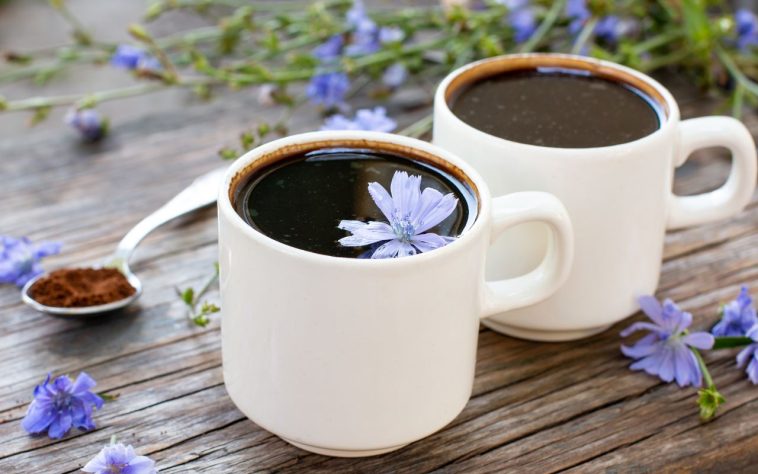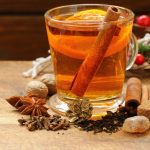For those looking to enjoy a warm and soothing beverage without caffeine, herbal teas provide a great alternative. Unlike traditional teas that come from the Camellia sinensis plant (which contains caffeine), herbal teas are made from herbs, flowers, fruits, and spices, offering a variety of flavors and health benefits.
Here’s a guide to the best caffeine-free tea alternatives, their benefits, and how to brew them.
1. Rooibos Tea – The South African Super Tea 🇿🇦
Rooibos (pronounced “ROY-boss”) is a naturally caffeine-free red tea native to South Africa, known for its earthy, slightly sweet flavor and numerous health benefits.
✅ Health Benefits:
✔ Rich in antioxidants – Supports immunity and fights free radicals.
✔ Good for digestion – Soothes bloating and stomach discomfort.
✔ Supports heart health – May lower blood pressure and cholesterol.
🍵 How to Brew Rooibos Tea:
1️⃣ Use 1 teaspoon of loose rooibos or 1 tea bag per cup.
2️⃣ Add boiling water (100°C/212°F).
3️⃣ Steep for 5-7 minutes.
4️⃣ Enjoy plain, or with honey and milk.
✅ Best For: Evening relaxation, digestion, and antioxidant support.
2. Chamomile Tea – The Ultimate Relaxation Tea 🌼
Chamomile tea is a mild and floral herbal tea made from dried chamomile flowers. It’s widely used for relaxation, stress relief, and better sleep.
✅ Health Benefits:
✔ Promotes sleep – Contains apigenin, a natural sleep-inducing compound.
✔ Reduces stress and anxiety – Helps calm the nervous system.
✔ Aids digestion – Soothes upset stomachs and reduces bloating.
🍵 How to Brew Chamomile Tea:
1️⃣ Use 1 teaspoon of dried chamomile flowers or 1 tea bag per cup.
2️⃣ Add hot water (90°C/195°F).
3️⃣ Steep for 5-7 minutes.
4️⃣ Enjoy with honey or lemon for extra flavor.
✅ Best For: Nighttime relaxation, stress relief, and digestion.
3. Peppermint Tea – The Best Tea for Digestion 🌿
Peppermint tea is a cooling and refreshing herbal tea made from dried peppermint leaves, known for its ability to soothe digestion and ease nausea.
✅ Health Benefits:
✔ Eases bloating and gas – Relaxes the digestive tract.
✔ Relieves headaches – Cooling effect helps reduce tension headaches.
✔ Clears nasal congestion – Acts as a natural decongestant.
🍵 How to Brew Peppermint Tea:
1️⃣ Use 1 teaspoon of dried peppermint leaves or 1 tea bag per cup.
2️⃣ Add boiling water (100°C/212°F).
3️⃣ Steep for 5-10 minutes.
4️⃣ Enjoy plain or with honey.
✅ Best For: After meals, digestion, and headache relief.
4. Hibiscus Tea – The Vitamin C Powerhouse 🌺
Hibiscus tea is a tart and vibrant red tea made from hibiscus flower petals, rich in antioxidants and vitamin C.
✅ Health Benefits:
✔ Supports heart health – Helps lower blood pressure.
✔ Boosts immunity – High vitamin C content.
✔ Aids weight loss – May help regulate metabolism.
🍵 How to Brew Hibiscus Tea:
1️⃣ Use 1-2 teaspoons of dried hibiscus flowers or 1 tea bag per cup.
2️⃣ Add hot water (95°C/200°F).
3️⃣ Steep for 5-7 minutes.
4️⃣ Drink hot or iced, with honey for sweetness.
✅ Best For: Hydration, heart health, and immune support.
5. Ginger Tea – The Ultimate Warming Drink 🍋
Ginger tea is a spicy and warming herbal tea, excellent for digestion, nausea, and inflammation relief.
✅ Health Benefits:
✔ Aids digestion – Stimulates digestion and reduces bloating.
✔ Fights nausea – Great for motion sickness and morning sickness.
✔ Reduces inflammation – Supports joint health.
🍵 How to Brew Ginger Tea:
1️⃣ Slice 1-inch fresh ginger root (or use 1 teaspoon of dried ginger).
2️⃣ Add boiling water (100°C/212°F).
3️⃣ Steep for 7-10 minutes.
4️⃣ Add lemon or honey for extra flavor.
✅ Best For: Cold weather, digestion, and inflammation relief.
6. Lemon Balm Tea – The Stress Reliever 🍋
Lemon balm tea is a light, citrusy herbal tea known for its calming effects on stress and anxiety.
✅ Health Benefits:
✔ Reduces stress and anxiety – Promotes relaxation.
✔ Improves sleep – Natural sedative effect.
✔ Supports digestion – Eases bloating and stomach cramps.
🍵 How to Brew Lemon Balm Tea:
1️⃣ Use 1 teaspoon of dried lemon balm leaves or 1 tea bag per cup.
2️⃣ Add hot water (90°C/195°F).
3️⃣ Steep for 5-7 minutes.
4️⃣ Enjoy warm or chilled.
✅ Best For: Evening relaxation and stress relief.
7. Licorice Root Tea – Naturally Sweet and Soothing 🍬
Licorice root tea is a naturally sweet and earthy tea with soothing properties for digestion and sore throats.
✅ Health Benefits:
✔ Soothes sore throats – Acts as a natural expectorant.
✔ Supports digestion – Reduces acid reflux and indigestion.
✔ Balances hormones – May help with hormonal balance in women.
🍵 How to Brew Licorice Root Tea:
1️⃣ Use 1 teaspoon of dried licorice root per cup.
2️⃣ Add boiling water (100°C/212°F).
3️⃣ Steep for 5-10 minutes.
4️⃣ Drink warm for best results.
✅ Best For: Sore throats, digestion, and natural sweetness.
Comparison of Caffeine-Free Teas & Their Benefits
| Tea Type | Flavor Profile | Best For | Best Time to Drink |
| Rooibos | Earthy, slightly sweet | Antioxidants, digestion | Anytime |
| Chamomile | Mild, floral | Relaxation, sleep | Evening |
| Peppermint | Fresh, cooling | Digestion, headaches | After meals |
| Hibiscus | Tart, fruity | Heart health, immunity | Afternoon |
| Ginger | Spicy, warming | Digestion, inflammation | Morning or after meals |
| Lemon Balm | Light, citrusy | Stress relief, relaxation | Evening |
| Licorice Root | Naturally sweet, earthy | Sore throat, digestion | Afternoon or evening |
Conclusion: The Best Caffeine-Free Teas for Every Occasion
Caffeine-free teas offer delicious flavors and health benefits without the stimulating effects of caffeine. Whether you need a calming bedtime tea, a digestion booster, or an antioxidant-rich brew, there’s a herbal tea for every need.
☕ Which caffeine-free tea is your favorite? Let us know in the comments!




GIPHY App Key not set. Please check settings